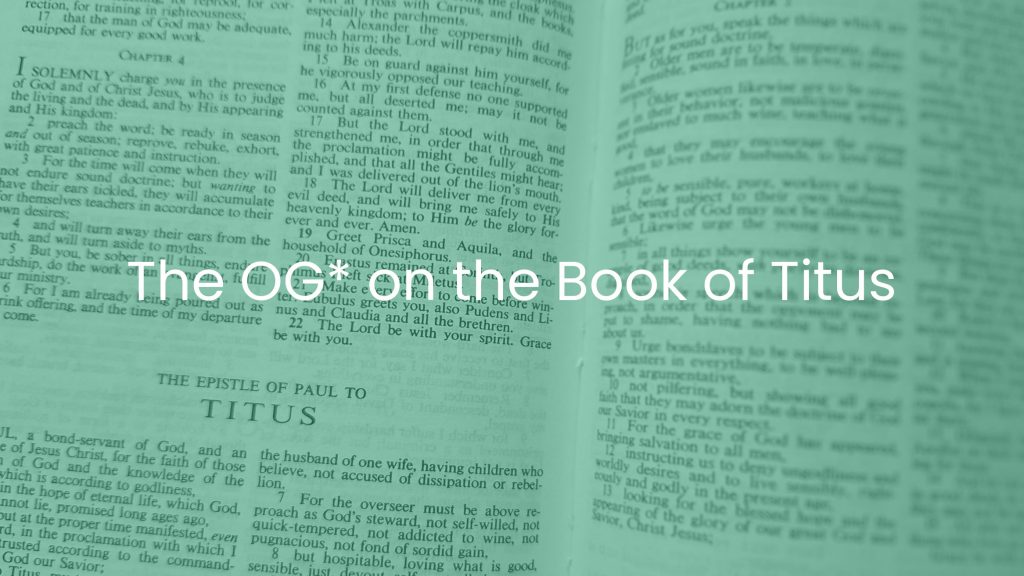|
Getting your Trinity Audio player ready...
|
To Titus, my true child in a common faith (Titus 1:4a, ESV).
The Book of Titus is personal. The Apostle Paul calls Titus his child in the faith.
First and Second Timothy, along with Titus, are called the Pastoral Epistles because they were written to Paul’s co-workers. However, the relationship is more than working together; Paul calls Titus my true child, and he also calls Timothy my true son (1 Timothy 1:2, NLT) — not of natural origin but of discipling and raising them up in the faith origin!
While reading the Pastoral Epistles, if you think, “This is a father writing to his children,” the epistles make better sense in the context of these relationships.
Let’s consider Titus in this regard.
But as for you [Titus], teach what accords with sound doctrine (2:1).
Declare these things; exhort and rebuke with all authority. Let no one disregard you (2:15).
Do your best to come to me at Nicopolis, for I have decided to spend the winter there (3:12).
As a father to his child, the Apostle Paul goes back and forth between the two themes with Titus — good works and grace! Like my dad saying to me, “Grant, make sure that you do this.” When I failed, he’d say, “Grant, don’t be so hard on yourself.”
We read this interplay of good works and grace with Titus in the following contrasting verses:
To Titus, my true son in a common faith. Grace and peace from God the Father and Christ Jesus our Savior (1:4).
And. . .
Show yourself in all respects to be a model of good works, and in your teaching show integrity, dignity, and sound speech that cannot be condemned (2:7-8a).
Paul also teaches both grace and works for the daily lives of followers of Jesus. Paul had left Titus in Crete to, as Paul writes. . .
This is why I left you in Crete, so that you might put what remained into order, and appoint elders in every town as I directed you (1:5).
The believers living in Crete (acting like children) needed the order of good works and the grace that makes works possible. Paul uses one of the most direct exhortations in all his writings to describe them.
One of the Cretans, a prophet of their own, said, “Cretans are always liars, evil beasts, lazy gluttons.” This testimony is true (1:12).
Paul’s solution, like Titus, his son in the faith, was teaching the immature Cretans good works empowered by grace:
The saying is trustworthy, and I want you to insist on these things, so that those who have believed in God may be careful to devote themselves to good works (3:8).
And. . .
For the grace of God has appeared, bringing salvation for all people, training us to renounce ungodliness and worldly passions, and to live self-controlled, upright, and godly lives in the present age (2:11-12).
Grace bestows good works, and good works open our hearts for grace. We need both!
*Old Guy

